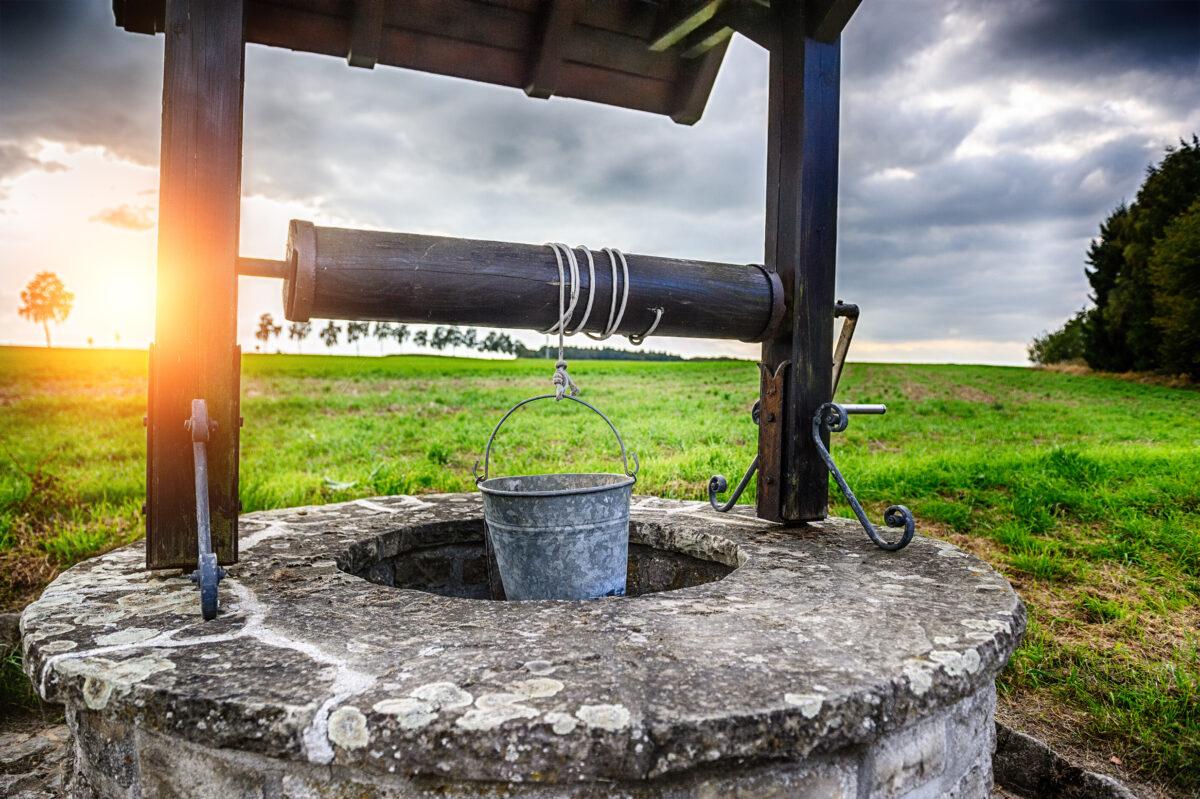In many countries, groundwater abstraction plays a central role in water supply, both for drinking water and for agricultural irrigation. Increasingly, this precious resource is also being tapped in the domestic sector through the use of private wells. But how sustainable is this? And what is the impact on the groundwater itself? These questions – and whether there are differences from country to country – are the subject of this article. (Image: Traditional drawing well ©Symbiot | Stock.Adobe.com)
Use of the private well
First of all, it is important to distinguish the intended use. Is the well water used for irrigation, as drinking water or, for example, to fill a swimming pool? (Spoiler: the latter is definitely not sustainable.) Because depending on the intended use, the answer to this question varies.
Pumping small amounts of drinking water for personal use has little impact on the environment as long as the groundwater level remains stable and the amount abstracted is moderate. However, other factors such as purity need to be taken into account. Read more about this on the german Environment Agency website.
The situation is different when it comes to watering gardens. Especially during the dry summer months, water consumption increases significantly. Lawn sprinklers or large irrigation systems often use large amounts of groundwater inefficiently, which can cumulatively cause groundwater levels to drop in certain regions. In the long term, this can have a negative impact on the local ecosystem as wetlands dry up, lakes lose water and even urban green spaces are deprived of water. To counteract this, watering should be rethought or at least made as efficient as possible. Tips on how to do this can be found here.
In summary, private wells in Germany are largely sustainable, especially hen it comes to drinking water. However, when it comes to watering gardens, responsible water use and efficient irrigation techniques are essential to avoid long-term environmental damage. Dry periods also play an important role: the drier the year, the more responsibly this precious resource should be used.
Country specific differences
Internationally, the same problems arise in an intensified form. This is mainly because Germany, like Austria for example, is a country with abundant water resources. Warmer countries such as Spain or parts of the US, overuse of groundwater by private individuals can lead to serious environmental impacts much more quickly. In California, even public wells are at risk of drying up, and the state itself has one of the fastest shrinking groundwater reserves in the world. In these extremely arid areas, groundwater must be used very sparingly and ideally not at all for the watering of ornamental plants.




